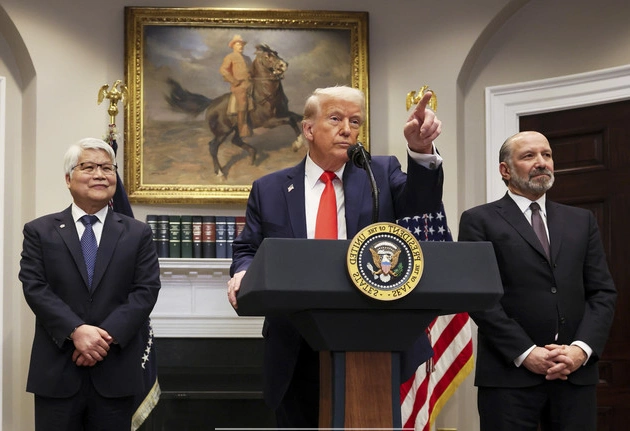
President Donald Trump’s tariff plans have stirred anxiety among various industries, but the tech sector sees a glimmer of hope amidst the uncertainty. Silicon Valley’s tech giants have long grappled with foreign regulations that impose taxes, fines, and restrictions not present in the U.S. market. With the prospect of tariffs, tech lobbyists cautiously anticipate a shift in the global trade landscape.
Optimism and Skepticism in Tech Lobbying
Matthew Schruers, president of the Computer & Communications Industry Association, emphasizes the need for fair treatment of American exporters in foreign markets. While tariffs are viewed as a potential leverage tool, there is a sense of apprehension regarding President Trump’s true intentions behind these trade measures.
Challenges and Uncertainties in Tech Trade
The EU, Canada, and other allies have enforced stringent tech regulations, prompting lobbyists to advocate against what they perceive as biased policies disadvantaging American tech firms. Trump’s vocal criticism of EU fines on tech giants reflects a shared perspective with tech lobbyists, hinting at a possible strategy to initiate negotiations through tariff threats.
However, the lack of transparency from the White House leaves the tech lobby in limbo, uncertain about the administration’s trade policy direction. Ed Brzytwa, vice president of international trade at the Consumer Technology Association, expresses concerns over the potential ramifications of broad tariffs on tech imports, highlighting the risks of reduced sales and consumer spending.
Opportunities Amidst Risks
Despite acknowledging the inherent risks in Trump’s tariff approach, tech lobbyists like Schruers see a chance for significant trade deals that could benefit the global economy. The administration’s focus on addressing digital taxes and foreign regulations aligns with the tech industry’s longstanding grievances, as highlighted in reports by the U.S. Trade Representative.
The tariff threats have already influenced policy decisions in countries like the U.K. and India, signaling a reevaluation of digital tax schemes to avoid potential tariffs. However, the specter of a trade war with the EU looms large, underscoring the complex interplay between global tech markets and geopolitical tensions.
Internal Discord and External Pressures
Internal disagreements within the Trump administration on tariff strategies add another layer of uncertainty for tech lobbyists. The diverging views on tariffs as a negotiation tactic versus a revenue generator raise questions about the administration’s overarching trade objectives.
The tech industry braces for the impact of sector-specific tariffs, particularly on semiconductors, which form the backbone of technological innovation. Lobbying efforts to convey the industry’s concerns to the White House underscore the importance of a coherent trade policy that balances national interests with global economic stability.
Navigating Trade Challenges for Tech’s Future
As the tech sector navigates the complexities of international trade dynamics, the need for a rules-based multilateral trading system remains paramount. Balancing the interests of American tech firms with global regulatory frameworks is essential to fostering innovation and sustainable growth in the digital economy.











